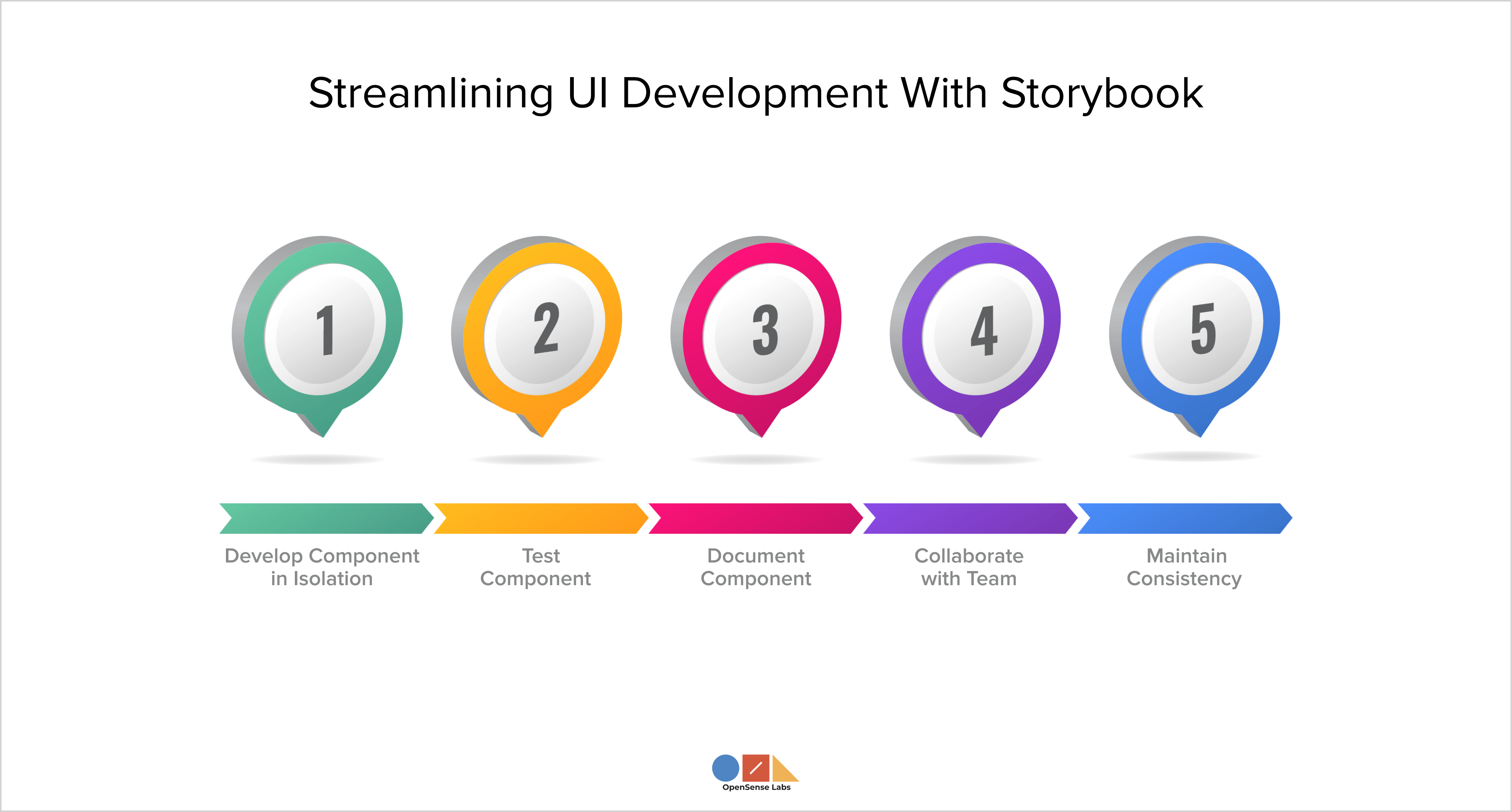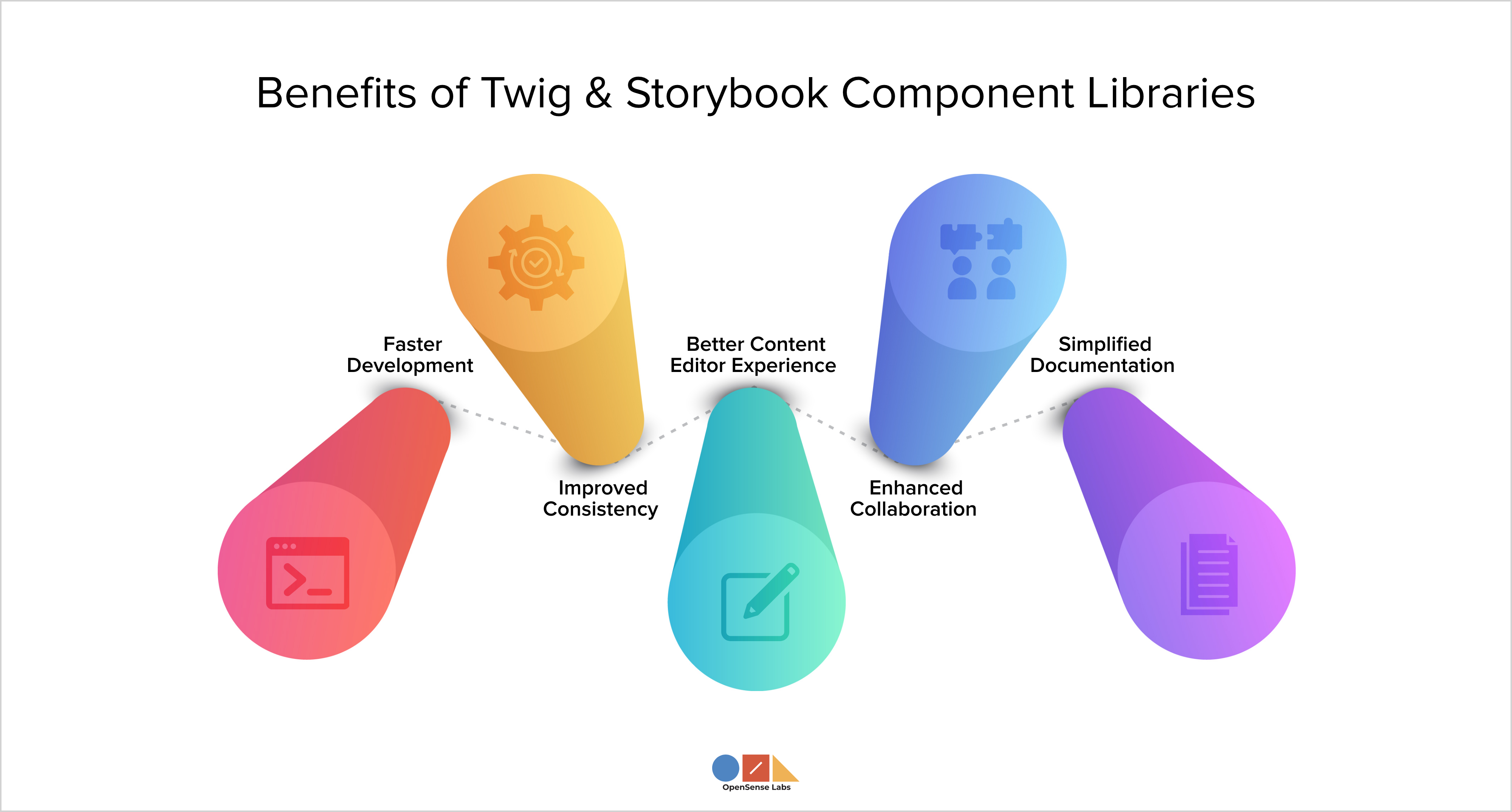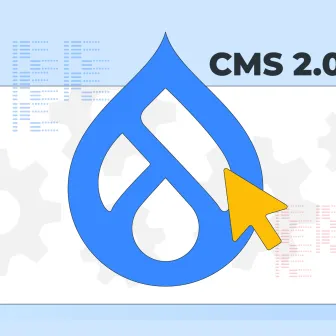Drupal SDC v/s Storybook: What’s The Difference?
One helps you set up your UI components, and the other allows you to work with them. we are exploring Single Directory Components (SDC) and Storybook for Drupal. Both are hot topics for Drupal developers. Drupal SDC has been getting noticed since it was introduced as an experimental module in Drupal 10.1, while the Storybook Drupal module is changing how developers and theme creators work together.
Component-based web development is now the preferred method for creating modern Drupal projects. Dividing your UI into components has many benefits, such as:
-
Modular development
-
Enhanced automated testing
-
Easier maintenance
-
Reusable code
-
Improved collaboration
In this blog, we will look at how Drupal SDC and Storybook for Drupal differ, and provide tips on when to use each one.
Before moving forward, if you want to migrate to Drupal from your current content management system, then check out OpenSense Labs’ migration services now!
Let’s dive in!
Drupal SDC: What Is It?
Single Directory Components (SDC) offer a new way to handle theming in Drupal 10. All the files needed to create a web component, like a button, carousel, or menu, are grouped together in one directory with Drupal SDC. This includes:
-
YAML metadata
-
Twig templates
-
CSS stylesheets
-
JavaScript files
You can also add optional files such as screenshots, PHP files, or media assets.
Drupal SDC makes Drupal's theming easier by merging HTML, CSS, and JavaScript into a flexible and reusable format. It seeks to improve the efficiency of finding and using all resources for an element, assisting front-end developers in navigating the confusion of scattered templates and files.
Also Check Out:
Drupal Storybook: What Is It?
Storybook for Drupal is an open-source tool that helps you create, test, and document UI components separately. It allows developers to:
-
See all components in one place
-
Test their functionality separately from the main codebase
-
Document components to help designers, developers, and QA teams work together more easily
Drupal Storybook improves uniformity among components and offers features such as decorators that enclose components in relevant markup. For instance, a grid component might need extra information to display properly, and Storybook for Drupal assists in providing that.

Building a Component Library with Storybook
Drupal SDC v/s Storybook: The Difference
The difference between Drupal SDC and Drupal Storybook is in their functions:
-
Drupal SDC: Focuses on the organization and development of reusable UI components in Drupal.
-
Drupal Storybook: Allows developers to interact with, test, and document those components.
OpenSense Labs is among only 100 organizations worldwide that the Drupal Association has acknowledged as a partner. Check out our services if you're looking to upgrade your Drupal 7 site to Drupal 10.
Drupal SDC: When To Use It?
Use Drupal SDC when you need to:
-
Simplify file organization: Put all related files (Twig, YAML, CSS, JS) into one folder.
-
Automate library creation: Automatically load CSS and JS files when a template is used.
-
Build reusable components: Make sure your project is modular and can be reused easily.
-
Maintain consistency: Make your UI elements have a consistent appearance and style.
-
Enhance scalability: Easily add or remove components as required.
-
Facilitate collaboration: Share and rescue components among different teams and projects.
-
Streamline debugging: Test components separately to find problems quickly.
Also Check Out:
Drupal Storybook: When To Use It?
The Storybook Drupal module improves Twig templating by adding two new Twig tags—stories and story—allowing users to create Storybook stories right in Drupal. Use Storybook for Drupal to:
-
Document and showcase components: Create a comprehensive library of user interface components.
-
Support front-end prototyping: Develop and improve components outside the main codebase.
-
Train new team members: Offer a visual, hands-on guide to your component library.
-
Collaborate on new features: Streamline discussions around design and functionality.
-
Empower content editors: Provide a library of design options for making landing pages.

Building Modular UIs with Twig and Storybook
Key Takeaways
-
Drupal SDC simplifies theming in Drupal by consolidating all component-related files into one directory.
-
Drupal Storybook provides a centralized, interactive tool for developing, testing, and documenting UI components.
-
While Drupal SDC helps organize your UI components, Storybook for Drupal allows you to interact with them.
-
Both tools work hand-in-hand to enhance modern web development processes.
Subscribe
Related Blogs
Drupal's Role as an MCP Server: A Practical Guide for Developers

"The MCP provides a universal open standard that allows AI models to access real-world data sources securely without custom…
What’s New in Drupal CMS 2.0: A Complete Overview

"Drupal CMS 2.0 marks a significant change in the construction of Drupal websites, integrating visual site building, AI…
Drupal AI Ecosystem Part 6: ECA Module & Its Integration with AI

Modern Drupal sites demand automation, consistency, and predictable workflows. With Drupal’s ECA module, these capabilities…




